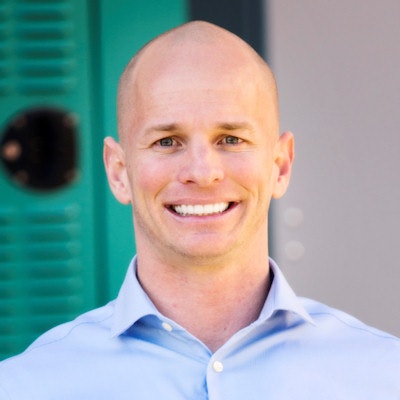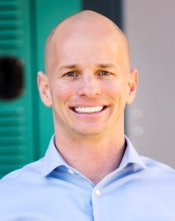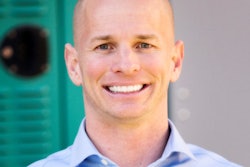
In this two-part series, Curtis Marshall of Dental Intelligence notes that every practice has pain points. In this article, he explores solutions to case acceptance and morning huddle issues.
As I discussed in my previous column, each practice has specific pain points where their practice might be hurting. Two common issues in practices are improving case acceptance and making your morning huddle more productive.
Case acceptance
 Curtis Marshall is the director of partner operations for Dental Intelligence.
Curtis Marshall is the director of partner operations for Dental Intelligence.Using an automated communication solution can be an effective way to add patients with unscheduled treatment back onto the schedule, but a better approach is to complement this automation with an experienced front-desk team member who knows each patient and can call them based on insights they've captured about each patient.
Kelly Schwartz, owner of Schwartz Consulting Group, calls this the "make it happen" model versus the "let it happen" model. Instead of calling or contacting every unscheduled patient in no particular order (let it happen), having your experienced team member make those calls based on the priorities discussed previously (make it happen) yields much more value, meaning patients most in need of treatment are receiving it.
Using data to determine the reliability of patients is also a powerful way to increase case acceptance. Reliability refers to such things as payment history, acceptance of treatment in the past, whether or not they keep appointments, and so on. An analogy Schwartz likes to use here is that of a baseball player preparing to face an opposing pitcher. How much the batter knows about the pitcher increases the likelihood of success at the plate. The same is true in your efforts to increase case acceptance.
The more you know about each patient directly correlates to their willingness to accept presented treatment. In today's virtual world, where so much communication is automated, and where it's easy to become disconnected from patients, using the insights available in an actionable data system can be invaluable in increasing case acceptance.
How's your huddle?
In working with many practices, Schwartz has heard a common response when asking whether a team holds a daily huddle: "They're boring."
Fair enough. Morning huddles can be boring and repetitive and feel like they have little or no value or benefit to the team or to patients. How does Schwartz respond to this complaint?
"When does a football team not hold a huddle? When they're behind and trying to catch up."
“Relevant practice data provides the team with the resources necessary to make the huddle more effective.”
Think about it. During a so-called "no-huddle" offense, there's more chaos, more confusion, more possibility for mistakes, and less effectiveness and control. Which sounds more appealing to you? Teams that are winning use a huddle to control the game, keep ahead of the opponent, strategize, and more. Which team would you rather be a part of? If you're not huddling each morning, there's a greater chance that you'll be scrambling the rest of the day.
Relevant practice data provides the team with the resources necessary to make the huddle more effective. But it's up to the team to realize the benefit of that data. In other words, the plays (data) give the team options, but it's up to the players (team members) to execute the plays and score.
The following are some effective huddle questions that Schwartz teaches his teams to include as they huddle each morning:
- When is our next available opening?
- How soon can we get a patient into hygiene?
- Which active patients still need work?
- Who came in yesterday but didn't reschedule, and why?
- How far out are we booked in hygiene?
On the hygiene department issue, if there is an opening in the next two to three days, the whole team will know to watch for this and fill those openings with the right patients.
Data also allows you to ask, "Where did we fall short yesterday so we can improve?"
This question isn't intended to be a "gotcha" question to catch a team member doing something wrong, but it should be used for team and individual improvement. Just looking at the data isn't enough. We need to also be discovering and acting on the opportunities that the data is showing us.
The morning huddle can be an incredible means of uniting and empowering your team, but only if you go about it the right way, with the right information, and with a clear focus on staying positive and engaging your team.
Start by starting
Whether you want to improve your recall system, increase case acceptance, or start holding a more effective, more engaging daily huddle, the best first step is to start. It is that simple.
Choose one thing you can do in each of these areas that you're not doing now and start doing it. Feeling that something is not right is always a good place to start. In the same way you spend critical time thoroughly diagnosing the pain a patient is feeling before you propose treatment, it is also essential to do something similar with your practice's current performance.
Rather than basing your actions on feelings, begin measuring the key performance indicators most important to you to understand where you are. Then discuss a simple plan for how you will improve each area. Involving your entire team here is mandatory. As you persist, you'll see some exciting changes begin to occur, which will increase your momentum and enthusiasm to keep moving. Success is closer than you think.
Curtis Marshall is the director of partner operations for Dental Intelligence.
The comments and observations expressed herein do not necessarily reflect the opinions of DrBicuspid.com, nor should they be construed as an endorsement or admonishment of any particular idea, vendor, or organization.



















